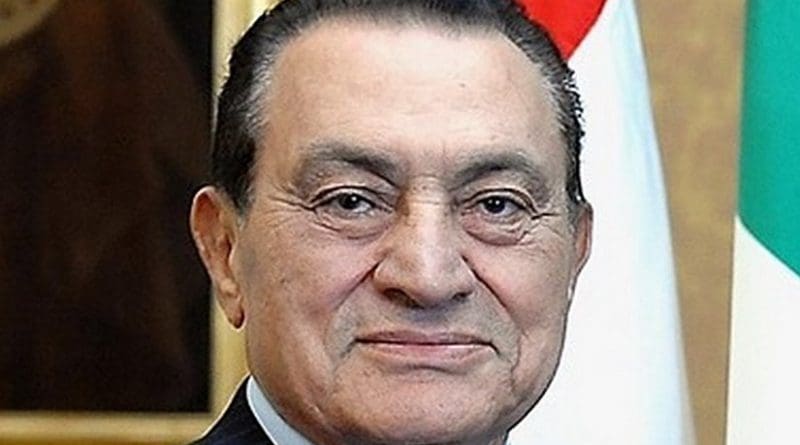Protestors in Egypt Remain Angry and Determined as Mubarak Fails to Quit
Contrary to all expectations, Hosni Mubarak, the 82-year old Egyptian dictator, failed to stand down on Thursday evening, when he finally addressed the Egyptian people on State TV. In a speech that began with fulsome praise for the youthful protestors and a claim that he understood their concerns, Mubarak insisted that he would stay in power until September, when, he said, he would honor his earlier promise to stand down. He also spoke about handing some power to the recently appointed Vice President Omar Suleiman (the former head of intelligence, and the favorite torturer of both the United States and Mubarak himself), and spent some time discussing constitutional amendments designed to bring to an end the dictatorial Emergency Law, which has been in place throughout his long dictatorship — and, almost without a break, since 1967 — whose ferocious restrictions on any kind of dissent have led to the imprisonment without charge or trial of thousands of perceived dissidents, both political and religious.
Appearing on State TV after Mubarak, Omar Suleiman urged the protesters to return home. “Youth of Egypt: go back home, back to work, the nation needs you to develop, to create. Don’t listen to radio and TV, whose aim is to tarnish Egypt,” he said, oblivious to the fact that the protestors in Cairo’s Tahrir Square are in no mood to go home. Waving their shoes in the air, the protestors — who had been quiet during the start of Mubarak’s speech — suddenly responded in anger, raising a thunderous roar of “Down with Mubarak!” and promising “revolution till we die” — and, as a result, drowning out Suleiman entirely.
Speaking on Al-Jazeera English, John Bradley, the author of Inside Egypt: The Land of the Pharaohs on the Brink of a Revolution, expressed dismay about the speeches, and fears of horrendous violence to come. in terms of the numbers of people involved, he said, the Egyptian revolution is one of the three biggest popular revolutions in history, along with the Russian Revolution of 1917 and the Iranian Revolution of 1979, and yet the speeches of Mubarak and Suleiman were “an insult to the dignity of the Egyptian people.” He added, anticipating an extraordinary turnout of protestors all over Egypt tomorrow, “The revolution starts tomorrow,” but warned that much depends on the plans of the military, which, this afternoon, muddied the waters by issuing “Communique No. 1,” in which the Supreme Council of the Armed Forces stated that they had started taking “necessary measures to protect the nation” and to “support the legitimate demands of the people.”
The communique followed a visit to Tahrir Square by Lt. Gen. Sami Enan, the chief of the Armed Forces, who stated, “All your demands will be met tonight,” which triggered the belief that Mubarak would stand down. FT.com also reported the views of Mohamed Ramsy, a major in the army, who “joined the protestors in civilian clothes.” Ramsy said, “I’m here because I must be here, I’m a citizen, and it’s not logical to have the Egyptian regime against the citizens. Omar Suleiman was chosen by a president we don’t like. I will not return to my unit. I will stay here until Mubarak goes. I’m not afraid any more, it’s time to say what we think.”
However, on Al-Jazeera English, John Bradley explained his fears, based on a different scenario. “If the army moves against the people,” he said, “we might see on Friday one of the most violent revolutions in the history of the world.”
Bradley was also highly critical of what he perceived as the role of the US and Israel in maintaining the Mubarak regime, pending whatever transition might follow. He called it “one last desperate attempt to keep their puppet in power, and it’s going to backfire massively,” and also warned that other countries were vulnerable to the revolutionary demands expressed by the people of Egypt — specifically mentioning Yemen, Algeria, Jordan and Bahrain, and warning that unrest could spill over to Saudi Arabia.
For now, however, all eyes remain fixed on Egypt, and on the messy and confused response of the Mubarak regime to the incessant demands of the people for free and fair elections, and for the complete removal of power of Hosni Mubarak, Omar Suleiman and anyone else involved with the 30-year dictatorship whose time has clearly come to an end.

